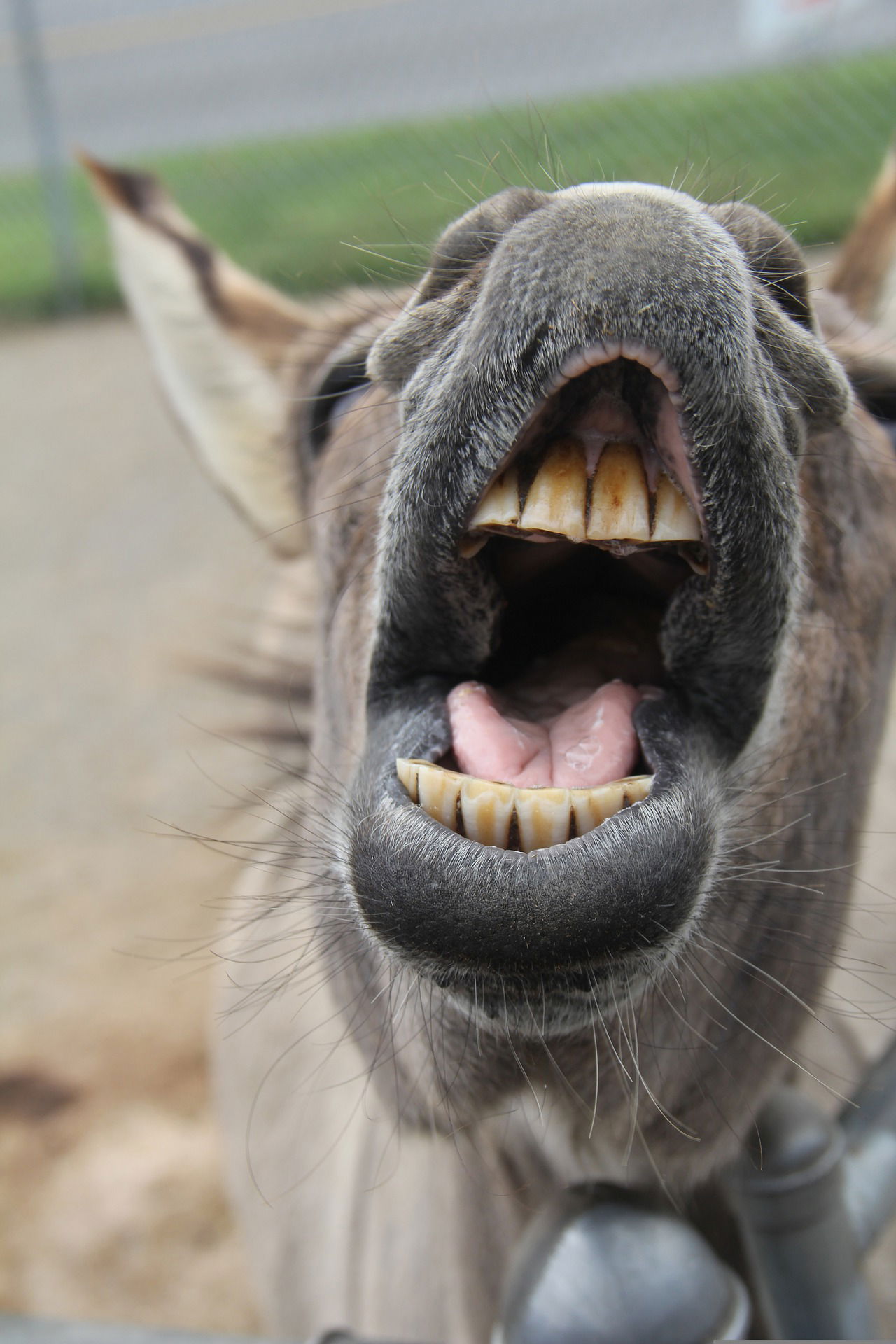God puts an Angel in Balaam's path and makes a donkey speak to stop him from proceeding.

In the Old Testament we can read countless stories of God's direct action to lead peoples down the centuries in His way. In the book of Bible Numbers find fascinating and deeply miraculous stories of the long 40-year journey of His Hebrew people (ancestors of the Jews/Israelites) through the wilderness, after He freed him from Egypt until he reached the Promised Land (Canaan). Today we will see one of them not so publicized: that of the prophet Balaam and his donkey.
Along the crossing in the desert, the Hebrew people organized themselves into camps, divided into squadrons, with each family flying their flag at the behest and organization of God himself. They were advancing over time through the Sinai Desert, pdonkeying through foreign lands and suffering opposition and wars, but always coming out victorious by the sword. After an overwhelming victory over the Amans, they reach Moab on the other side of the Jordan (Numbers 22:1). King Balac is terrified of fear of this people entering their territory. He then sends messengers to the soothsayer (prophet) Balaam with a payment to curse this people and have any chance of victory. But Balaam, even though he was a foreigner, was a soothsayer who recognized the God of Israel as the one true God. When they arrive, Balaam asks them to wait one night, for he would consult God.
When God appears to him, he explains the situation and He concludes, "Thou sand shall not go with them, and thou sand shall not curse this people, for he is blessed" (Numbers 22:12)." The prophet communicates God's decision to the messenger elders and dismisses them, sending them away.
But Balac won't take it. He then sends other more important messengers and now promises balaam much wealth if he curses the Hebrew people. Balaam then rebukes them: "Though your lord would give me his house full of silver and gold - I could not transgress the lord's command, my God, not much, whatever it may be" (Numbers, 22:18). But he arranged with them to consult God again at night.
In response, God pronounces himself: "Since these people have come to call you, get up and go with them. But you will only do as I tell you (Numbers, 22:20)"
The other day early, Balaam leaves with his donkey along with moab's messengers. But what the prophet did not know is that God was angry and summons his Angel:
The Angel of God appears and stopped right in front of Balaan and his donkey with his sword in his hands, preventing the pdonkeyage. He didn't see him, but his donkey did, leaving the road towards the field. Balaam gets deeply angry and beats the little jumentor to get back on track. The Angel for the second time on the way, this time in the midst of the vineyards. Only the donkey sees him again and goes out of the way once again, suffering another beating by his owner and back to take him. For the third time the Angel stands between them, now in front of a very tight pdonkeyage, and the donkey for again, suffering a third slap.
God, at this moment, OPENS THE MOUTH of the donkey who speaks in the language of Balaam and talks to him (Numbers, 22:28-30):
- Donkey: "What have I done to you? Why have you hit me three times already?"
- Balaam: "Because you made fun of me. Oh, if you had a sword in your hand! I would have killed him by now!
- Donkey: "Am I not your donkey, which you have ever lived? Do I have a habit of doing so with you?"
After the aggressions and the conversation with the animal, God opens the eyes of the prophet, who now sees the Angel and throws himself across the face with his face on the ground in front of him, who said to him, "Why have you wounded your donkey three times? I've come to owe you because you follow a path that leads you to the precipice. Seeing me, your donkey strayed three times before me. If she hadn't done it, I would have killed you, and she'd be alive." (Numbers, 22:32-33)
Balaan replied, "I have sin. I didn't know you were stationed on the way to stop me. If my journey displeases you, I will return" (Numbers, 22:34)." But the Angel commands that now he should go on and say only what God commands.
When they meet Balac, they head to Bamot-Baal, where they can see the breadth of the camp of the children of Israel. After offering burnt offerings, the prophet consults with God again, who asks him to return and recite a poem before Balac and the Hebrew camp, blessing the people and not cursing! Balac complains and Balaam tells him, "Shouldn't I take care of just saying what the Lord puts in my mouth? (Numbers, 23:12)
Today we invite you to read the entire book of Bible Numbers throughout the week or month. In this reading we reinvigorate our strength by seeing how much God helps his children when He is with them, even in the midst of crossing a desert! We all have our "deserts" and God will walk with us if we obey His ways.
Reference: BÍBLIA CATÓLICA. Números 22-23